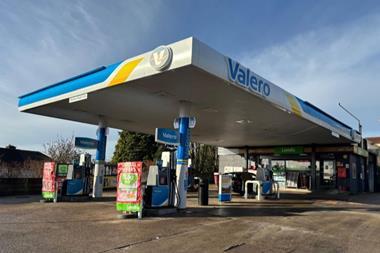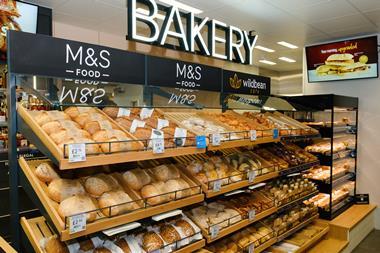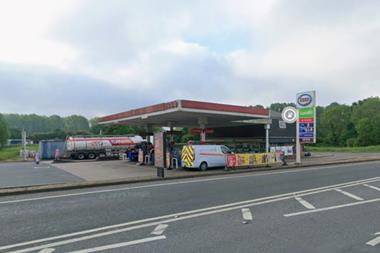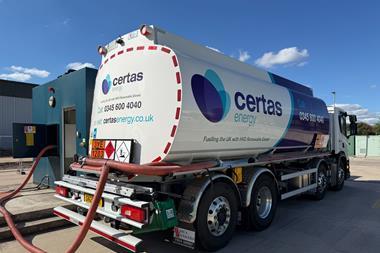It has been a recurring theme of this column to look at steadily rising pump prices and point out the negative effect on retailers; in particular to highlight the effect of the ’retailer merchandising agreements’ which have delivered a constant ’heads I win, tails you lose’ bonus to the credit card companies. To restate the problem: the basic fuel margin (ie the difference between pump price (excl VAT and the invoiced price from the oil company) is calculated in terms of pence per litre and is effectively ’fixed’ in the short term by most industry-standard supply agreements, regardless of pump prices. In contrast, virtually every traditional credit card agreement specifies that the ’commission’ paid by the retailer to the card processor/acquirer is calculated as a percentage of the pump price. So while the retailer may still earn 3ppl whether the pump price is £1/litre or £1.30/litre, the card companies will see their income rise from (say) 1.75ppl to 2.275ppl.
These principles have been in place for years, while superficially the details have changed - eg ’Platts-related’ supply deals have replaced ’fixed margin’ deals. In practice it means the dealer can’t expect to have a ’fixed’ income per litre any more. Merchant agreements between individual retailers and card acquirers have been replaced by single-point agreements, often made between the dealer and their oil company so that some dealers don’t even directly see a monthly ’credit card cost’ invoice. The real charge is somewhere in the supply-price calculator spreadsheet their oil company provides for them. One detail that hasn’t changed over the years is the one that prohibits you from putting any surcharge onto credit card transactions to cover the costs. Whether it actually prevents you offering a ’cash discount’ to non-credit card customers is a point that may soon be earning m’learned friends bonuses next Christmas.
Of course there are other ways for customers to pay for fuel: there’s always cash, although apart from its well-known physical handling problems (dirty, heavy, prone to get lost/nicked) it suffers from another problem - almost none of the banks really want to handle it any more but, if you insist, they’ll reluctantly charge you for bringing it to them. They might charge you a direct fee for handling it - say 50p per £100 that you deposit, or they may make a more general ’turnover-related’ charge -say 0.125% of everything that goes through your account. Some banks will happily try to do both (look at your detailed breakdown of quarterly bank charges). Either way, as you might expect, you’ll still be paying them more as pump prices rise, even though of course your margin stays the same. Is this starting to sound familiar?
Fortunately there is still a third way which might just be the answer to the current problem: debit cards. Most retailer agreements for debit card acceptance stipulate a fixed transaction charge (say 8p) per sale, regardless of the value of that sale. As long as you can encourage your customers to make larger volume purchases (ie fewer individual sales for the same total volume) then your costs stay relatively ’fixed’ (as does your margin) regardless of pump prices. As long as your gross margin exceeds the fixed transaction cost, this is currently the cheapest way to sell fuel.
To illustrate, let’s do some basic arithmetic: you take a delivery of 20,000 litres of diesel; you sell that diesel in 500 customer transactions, at 40 litres per transaction; you have a basic margin of 3ppl from invoice to pump price ex-VAT; hence your 20,000 litres should give you a maximum of £600 gross margin. The pump price (inc VAT) for diesel is 129.9ppl; your total revenue at the pump price (ie inc VAT) is £25,980.
Scenario 1 - sell all the fuel for cash: your bank charges you 48p/£100 you deposit with them; the cost of banking the whole £25,980 will therefore be £124.70, or 0.62ppl under the present assumptions.
Scenario 2 - sell all the fuel on debit cards:charges are 8p per transaction; you have 500 individual transactions so the total cost is £40, or, 0.20ppl under the present assumptions.
Scenario 3 - sell all the fuel on credit cards: your merchant agreement commission rate is 1.75% of retail; the charge for selling the whole £25,980 will be £454.65, or, 2.27ppl under the present assumptions.
Now who’s going to be the first retailer brave enough to tell the credit card companies the ride is over?



























No comments yet